From Wayne: I used to think I didn’t like Musicals. There were a few, I guess. I saw Cabaret on TV when I was young (a heavily edited version of it, I’m sure), and had fond memories of some of the songs and imagery. There were others I saw in this context. I remember the movie versions of Oklahoma and The Sound of Music. Some kid’s fair, like Mary Poppins. I saw Grease in the theater, and fell in love with the Rocky Horror Picture Show, though that was about so many other things than just being a Musical. But in general, I didn’t really connect with them. Maybe if I had had the opportunity to see more of them in a live setting, or a better understanding of Broadway, they would have made more sense.
Then, just a few years ago, I had an experience that changed my mind. A friend of mine (who, if all goes as planned, will be joining us on this episode), is a high school art and drama teacher. For the last twenty-some years he has directed and produced the spring musical at his school. He invited me to come see their production of the stage musical version of Young Frankenstein. I fully admit, at the time, I was going primarily to be supportive of a friend, without much expectation for a high school musical. Young Frankenstein is one of my favorite movies, how bad could this be.
Put simply, I was blown away. The talent of these students, along with the craft and production values of this show, completely took me off guard and gave me a whole new appreciation of what high school kids can do, and of musicals in general. Since then I have gone to every one of his productions and have yet to be disappointed. I have also made an effort to see more live performances. I saw Camelot, which was a serious gap in my overall Arthurian fandom anyway. I’ve seen two different productions of Cabaret and it now ranks among my favorite things ever.
In thinking about Musicals I also thought about those things that seem to cross lines of genre/definition, as well as the influence of the Musical on other forms. I saw a stage production of The Who’s Tommy. This started out as a concept album, but is essentially a collection of songs that create a narrative. It was turned into a movie, then into a stage play. I’m fascinated by that transition. There are other Rock concept albums that have not made the same kind of transition, but elements of the theatrical still make their way into concerts. A narrative can be read into Bowie’s Ziggy Stardust album, but it is not by any means a specific story, though in watching his live performances of the time he embodied the character and the concept on a meta-level. Alice Cooper’s Welcome to my Nightmare tour was a full-on stage production, creating a symbolic narrative theme that still appears in his live shows forty-five years later. Saturday Night Fever is not really a musical in the traditional sense at all but simply would not work without the soundtrack (and that’s the cue for the inevitable discussion of diagetic versus non-diagetic music that will certainly take place in this episode).
I’m sure we’ll discuss the musical episodes of shows like Buffy the Vampire Slayer and Riverdale (of course). I’ll bet a dollar that Mav mentions Cop Rock. I want to talk about the adaptation of Alison Bechdel’s graphic novel Fun Home. How does opera fit into the conversation? Are music videos just mini-musicals with only one song?
But mostly we just want to talk about Musicals. What is the appeal? Why does something that just doesn’t happen in real life speak to us (sing to us?)? Do we all need a soundtrack and choreography in our lives? Tell what you think. What are your favorites Musicals and why? Or do you think they’re just stupid? Why? What makes them work or not?
In the meantime, I’ll be over here singing along to the Time Warp.
From Mav: Ok first of all, I don’t HAVE to mention Cop Rock. I mean, sure it is the most innovative and conceptually original 11 episodes of content to grace a television screen that does more to stretch the bounds of the medium than any program since the The George Burns and Gracie Allen Show. Sure it is a riveting and compelling drama that bridges the formulaic episodic police procedural of the 1980s into the longform serialized character arch driven storytelling version of the new golden age of television that speaks to the breakdown of societal norms as aspirational Americana moves towards cynical postmodernity. Sure it gave the world the gift of Sheryl Fucking Crow. But you know, whatever… we’ll just skip it.
Unlike Wayne, I’ve always been a huge fan of musicals. I’ve mentioned on previous shows that I was a huge fan of Cats as a kid. I understand the flaws with Cats (the original Broadway production makes no more sense than last year’s film). I don’t care. Cats is magical and wonderful and everything that is good with the world. Ok… maybe not… it’s a sexually charged homoerotic drug-pitched fever dream… but you know… for the kids. The magic isn’t the story. There’s no real narrative. There are no real characters. The magic is that it distills the essence of musical theater down beyond story… it is about the language of theatre. The raw emotion. You’re not supposed to “get” Cats. You’re supposed to FEEL Cats!
And maybe that’s why I love musicals. We did an episode a while back all about how scores and soundtracks fit in to cinema. On that episode we talked about the way in which John Williams score is as much a part of creating the character that is Darth Vader as James Earl Jones’s voice or David Prowse’s… uh… slow walking. The musical takes that a bit further. The trope of a musical is that sometimes emotion reaches such a level that one is incapable of emoting through simple language. In these cases, a character has no choice but to express it through the language of song and dance. What’s great about this is after the fact, I find myself able to experience the emotions I associate with Cats, Tommy, West Side Story, Carmen or Sucker Punch through simply listening to the albums. Unlike a book or film where the words or acting are inherent in my enjoyment, the music becomes the centerpiece.
Really, I think in today’s world when we talk musicals the first thing that people are going to think is Hamilton. Lin-Manuel Miranda basically made America as a whole have the same transformational epiphany that Wayne was mentioning. In 2020, I think it’s completely reasonable to say you’re a musical fan and everyone will be on board. But I think they’re mostly just thinking about that one. That said, I do think that between something like Hamilton, and to a lesser extent shows like Glee and the musical episodes of Buffy and Riverdale, there’s an appreciation for the form that didn’t exist during the innovative days of Cop Rock.
I have much the same questions as Wayne. I also wonder if people have found their tastes and appreciation of the form changing over time as it re-achieves the mainstream acceptance it once had.







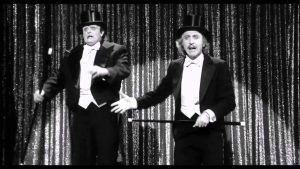
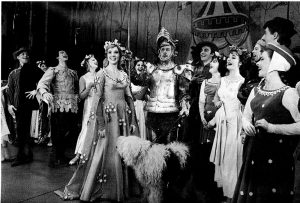
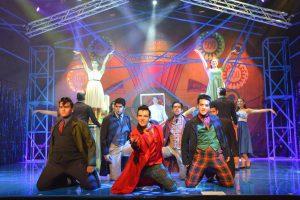
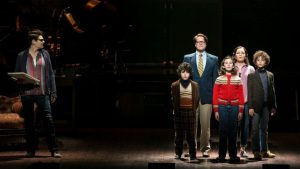
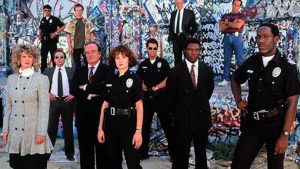
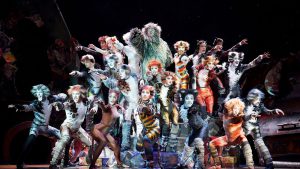

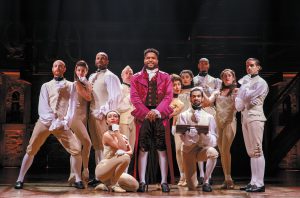


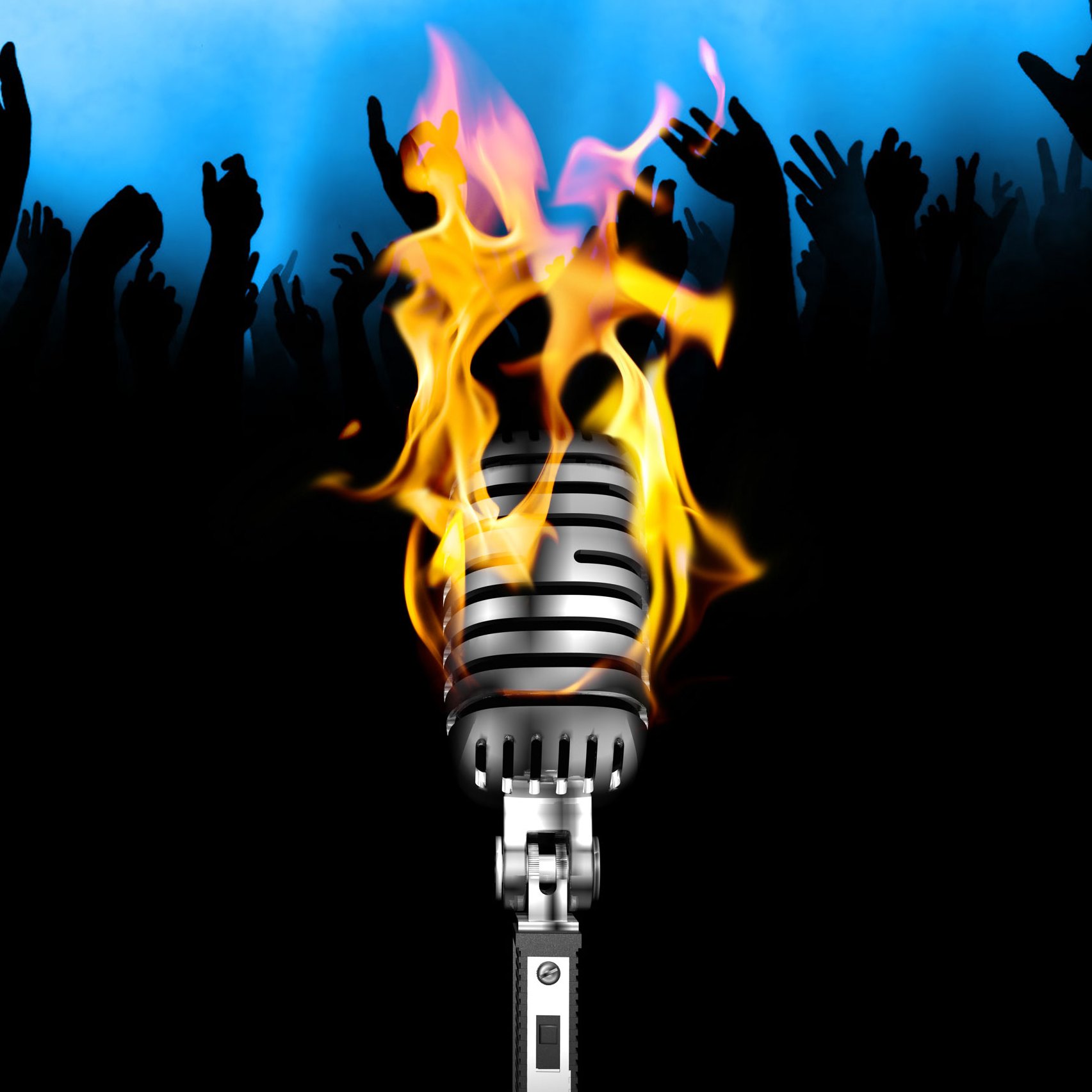
I used to think I didn’t like musicals, but as I grew up I realized that what I didn’t like was the musicals which were popular with the people I knew when I was in high school (Andrew Lloyd Webber? No thank you!) When I got to see a little more diversity of musicals, I realized that, on average, I do tend to like them.
We’ve always loved musicals. We just used to call them Disney movies.
I grew up listening (and dancing around the house) to music from various Disney musicals on a record we had. Sound of Music is one of my favorite musicals, because everything about it is nearly perfect. The music from A Chorus Line is also stellar.
Although Cats has one of the best songs (Memories, which my cat seems to like too), I just watched it and hated it. Knowing that it’s based on T.S. Elliot poems does not help. I fucking hate T.S. Elliot. Nothing he ever wrote makes any sense; it just seems pretentious and elitist to me. His incomprehensibility and arrogance probably contributed to driving his first wife crazy. Then, after they separated, he ghosted her and wouldn’t tell her where he was and told his friends not to tell her. Of course, this made her act crazy, which he and his friends all blamed on her.
I’m on the outside looking in with Musicals, usually. The way my brain is wired, I mostly hear lyrics as additional music/noise as opposed to something that’s translated into language/words. Visual context certainly helps (so like a musical that isn’t on a stage is something I can understand better) and subtitles certainly help as well.
Anyways, not really the point of your post, I guess. My two cents on this is that I didn’t realize musicals were a “thing” people were really into until I kept seeing people ALWAYS talking about the Buffy musical episode anytime Buffy gets mentioned. Prior to that a friend of mine introduced me to Into The Woods and Sweeney Todd and that was about the extent of my musical exposure (if you don’t count Disney cartoons.)
I guess that’s also still not the point of the post. My answer is uhh… “I don’t know why we suddenly love musicals. But I’ll blame Joss Whedon for this, I guess.” I mean, at the very least, him doing it with Buffy inspired every TV show to eventually attempt a musical episode by their 3rd season if not earlier.
Depends on the music. Most musicals I don’t like because I don’t like the music.
Don’t sing at me, weirdos. ?